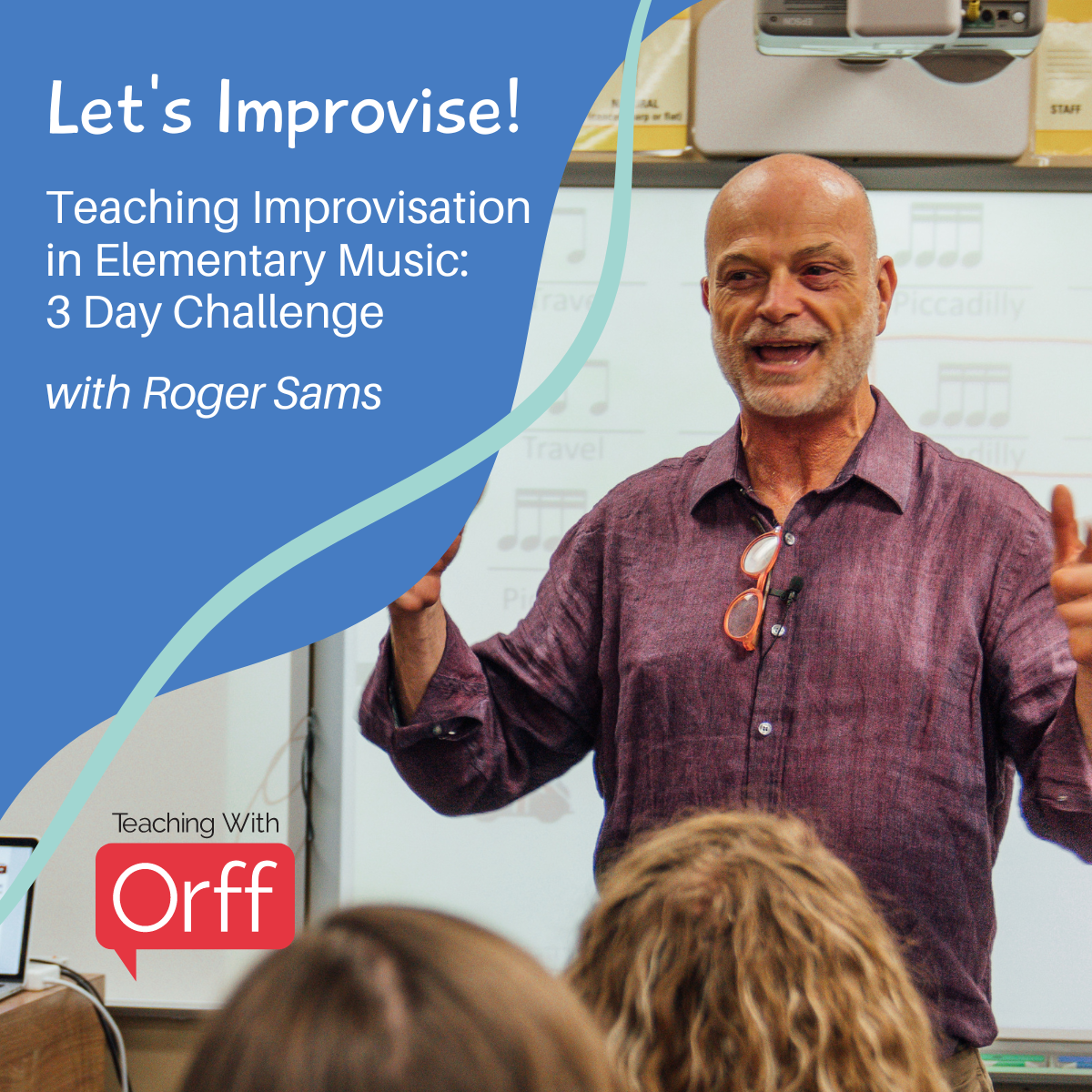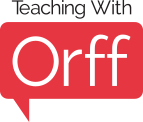
Making It Work: Paying It Backward
Paying It Backward
I am a retired elementary school music educator and I taught over 30 years in Michigan public schools. I am now mostly retired. I am a teaching artist for an Aesthetic Education program and I have my own private Orff Music Studio, teaching 2 days a week. I love being able to stay in touch with educators and students while picking and choosing my work load. (I also do some work for a local university among other odd jobs.)
I am still active with my local Orff Chapter—the West Michigan Orff Chapter. As a retiree and past officer, I am able to attend our local workshops for free. (I am also an AOSA member.) I like to stay active with the chapter and keep in touch with current practices, as well as make new friends and keep in touch with previous acquaintances. It keeps me going!
I look back at my career and am so grateful for my mentor teacher when I was hired in at my first real elementary music job. I was trained to be a band director and I wasn’t sure what to do with these little ones. Beverly introduced me to the world of Orff Schulwerk. She introduced me to local chapter members. She encouraged me to attend my first national conference. When she retired she passed on all her materials—including a full instrumentarium she purchased herself when the school district wouldn’t buy them for her. During my time in my district, I became the elementary music team leader. We created an Orff based curriculum and included the instruments in our necessary materials. (I can say that all 8 elementary schools in the district have a full set of barred instruments.) My fellow music educators shared their ideas, songs, successes and those things that didn’t work out so well. Bottom line, the people I collaborated with during my 30+ years (including all those amazing clinicians) have given me so much.
In my (mostly) retirement years I’ve decided I need to pay it backward. I was given so much that helped shape the musical path I followed for over 30 years, I’d like to share that knowledge with others. I’m doing that through our local chapter. I have started a library of resource materials for our chapter members to use as needed. I donate materials I no longer use for a silent auction, as well as hand knitted items. 100% of the money raised goes to the chapter’s scholarship fund for Orff training. And I offer to visit members’ music rooms as either an observer to give suggestions or to demonstrate a process lesson with a class or two.
Our West Michigan Orff Chapter is a small but dedicated group. I hope that I can continue to work with and help this chapter that has done so much for me in the past. I encourage others to support their local Orff Chapters. Be a member, be an officer, recruit new teachers in your area. Music educators are amazing people with so many great ideas—and we like to share them. Join AOSA and attend a national conference. It is so good for the soul to be surrounded by like-minded people. And when you retire, don’t be afraid to keep in touch with your chapter. Your experience is worth sharing.
See all posts by Marcia Working
5 Comments
Leave a Comment
Sign up for latest Orff Tips, Lesson Plans and Advocacy Tools

Empower your students to create their own music in this free 3-day challenge with Roger Sams. (Lessons delivered via email)

Learn about the legendary factory that started it all and why so many teachers like you love our instruments.

That is wonderful! I am so upset because the new music teachers in my district will not attend even 1 Orff workshop. This has been going on for years. How would you handle this?
Our local Orff Chapter (WMOC) has offered a free workshop to anyone who has not attended one before. We also have a chapter share that is free and open to anyone. All music teachers in our district are urged to go to at least one workshop a year. It’s hard for those with young children to attend them all, so we set the goal at one. Usually teachers will be so excited, they come to another one.
Our district also has monthly department meetings. If your district does something like this, bring someone in to do a workshop instead of a normal meeting. It can be someone from your local Orff chapter and doesn’t have to be an expensive clinician.
Another option–If you are an AOSA member, go through the video archives and find a workshop that is appealing to you. Invite your peers to come to a pizza dinner and share the video. You can pause the video and discuss along the way as well as try things out for yourselves.
You can start even smaller. Present a book to your peers, using simple melodies, rhythmic ostinati, movement. Make it something they can use right away in their classroom. Or take one of the lessons by Roger Sams from Purposeful Pathways that he has shared on this site. A lot of music educators have heard about Orff, but don’t really know that it is a process, not a curriculum. If they get exposed and try it in their classrooms–if their students get exposed and have fun with it, they’ll be hooked.
Excellent advice! I just accepted a position to teach Elementary Music in Shanghai, China. I can’t afford to attend a local Orff Workshop before I go but I will definitely heed your advice. I used Orfff many years ago when I taught Elementary Public School music. I am visiting a retired Orff teacher near me in Oklahoma next week. I’m so excited to learn from her “notebook” of ideas! Keep paying it backward. You are appreciated.
Would you please specify what you mean exactly by a “full set of barred instruments”? All 8 elementary schools have…..?
Everyone has AT LEAST 2 bass XP’s, 3 alto XP’s, 3 soprano XP’s, 1 each bass, alto and soprano metalo[hone, 3 soprano and 3 alto glocks. For untuned percussion, 4 tubanos, and a wide variety of untuned percussion, including 15 frame drums. Most schools have more than this list.